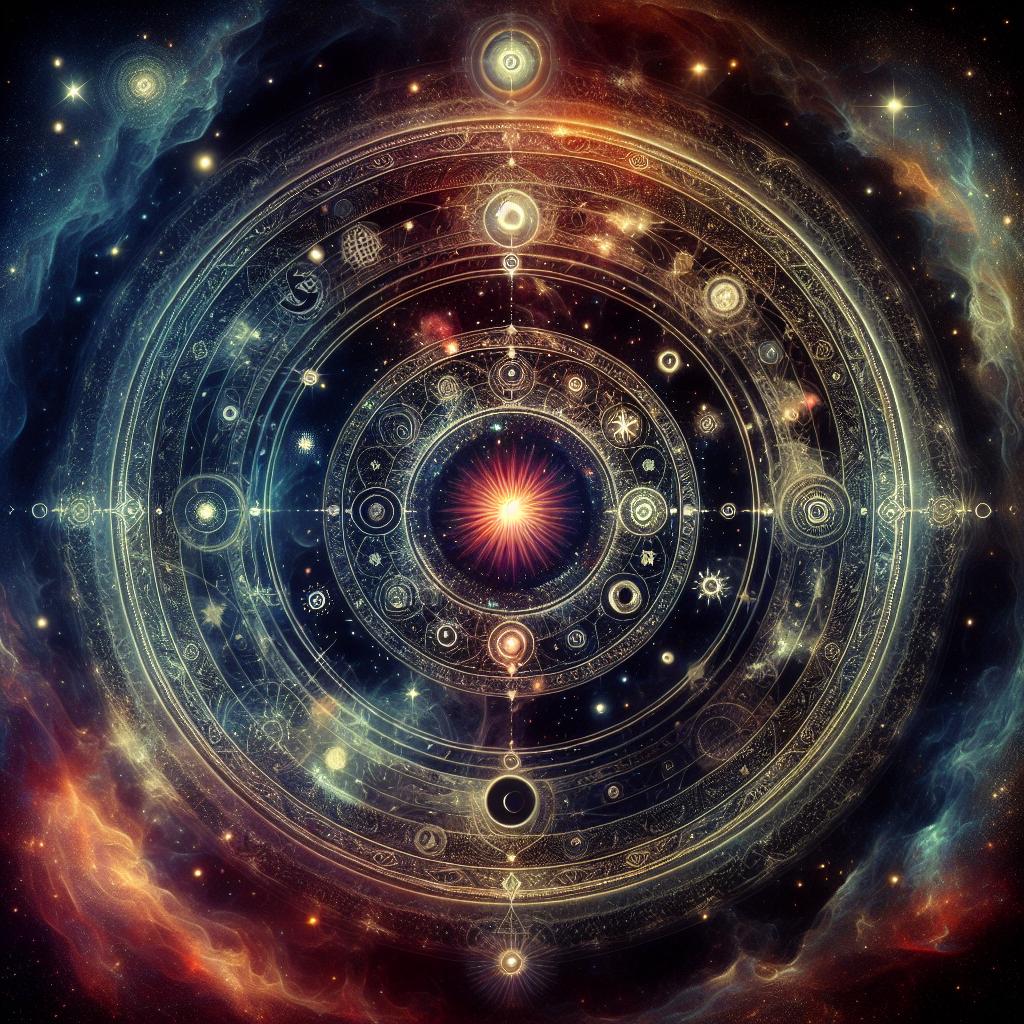
Unveiling the Mystery: Dark Matter and the Unknown God in Carmelian Revelation
Published: 24 June 2024
Is ‘Dark Matter’ the ‘Unknown God’?
In the realm of cosmology and astrophysics, the concept of "dark matter" has been proposed as a solution to explain certain observational discrepancies within the standard big bang model. However, it is crucial to understand that "dark matter" does not provide an explanation for what we see; rather, it is an admission that no one has a clear understanding of the universe's composition. In this article, we will delve into the topic of "dark matter" from a staunchly conservative, biblical perspective. We will explore key questions related to this subject and provide thorough answers grounded in scripture.
What is Dark Matter and Why is it Proposed?
The term "dark matter" refers to a hypothetical substance that emits no light or radiation and therefore cannot be directly observed. It is postulated to exist based on the need to explain certain phenomena within the standard big bang model and astrophysics. Secular cosmogonists, who adhere to the big bang worldview, propose dark matter as an invisible entity to bridge the gap between theory and observation.
The proposal of dark matter arises from an attempt to reconcile various anomalies within our understanding of the universe. For instance, in galaxies, outer stars often orbit faster than inner ones, contrary to what we observe in our solar system. To account for this discrepancy, most astronomers suggest the presence of a dark matter halo surrounding galaxies. Dark matter is also invoked to explain irregularities in the motion of galaxies and the formation of stars and galaxies in the early universe.
Is Dark Matter Merely a 'God of the Gaps'?
The concept of "god of the gaps" refers to using an unknown or unexplained phenomenon to fill gaps in scientific knowledge. In essence, it is attributing divine qualities or powers to something that is yet to be understood. When applied to dark matter, it becomes apparent that it is, in fact, a "god of the gaps" for modern astrophysicists. Dark matter serves as a placeholder to account for our lack of comprehension regarding certain observations and discrepancies.
However, as Christians, we do not need to rely on this type of explanation. The Bible affirms that God is the Creator of the universe and everything within it. In Genesis 1:16, it states, "And God made the two great lights—the greater light to rule the day and the lesser light to rule the night—and the stars." This verse clearly indicates that God created the stars, including galaxies, without any need for an unknown substance like dark matter.
Could Dark Matter be Replaced by New Physics?
Just as Einstein's theory of general relativity revolutionized our understanding of physics and explained the anomaly in the orbit of Mercury, it is possible that there could be a new theory capable of replacing dark matter. Moshe Carmeli, an Israeli cosmologist and physicist, proposed a 4D space-velocity metric that explains various phenomena without the need for dark matter or other fudge factors.
Carmelian relativity offers an alternative explanation for the flatness of the universe and resolves the issues surrounding galaxy rotation. By encompassing current physics while also expanding our understanding, Carmelian relativity shows promise in eliminating the need for dark matter as a theoretical construct. Just as Einstein's theory superseded Newtonian physics by providing a more comprehensive framework, Carmelian relativity could potentially do away with dark matter entirely.
Is Dark Matter Vital for Big Bang Believers?
The proposal of dark matter primarily stems from the perceived necessity to support the standard big bang cosmology. According to this cosmological model, dark matter is essential for explaining various aspects of the universe's structure, evolution, and formation. For instance, it is invoked to account for the formation of stars, galaxies, and galaxy clusters, as well as the alleged accelerating expansion of the universe.
However, it is important to note that the Bible provides a different perspective on the origin and formation of the universe. The Scriptures state that God created the heavens and the earth, including all celestial bodies, in six literal days. This biblical account contradicts the need for dark matter to explain the formation of stars and galaxies within a secular big bang framework.
Conclusion: Dark Matter and the Creator
In conclusion, "dark matter" is a theoretical construct proposed to fill gaps in our understanding of the universe. It serves as an admission of our limited knowledge rather than providing a genuine explanation for observed phenomena. As Christians, we can confidently affirm that God is the Creator of the universe, and He created everything without any need for an unknown substance like dark matter.
While secular cosmologists may continue to rely on dark matter as a fudge factor to support their theories, we can embrace alternative explanations rooted in biblical principles. Just as Einstein's theory of general relativity revolutionized physics, new theories like Carmelian relativity offer possibilities for replacing dark matter. Ultimately, our faith rests in God as the ultimate source of knowledge and understanding.
